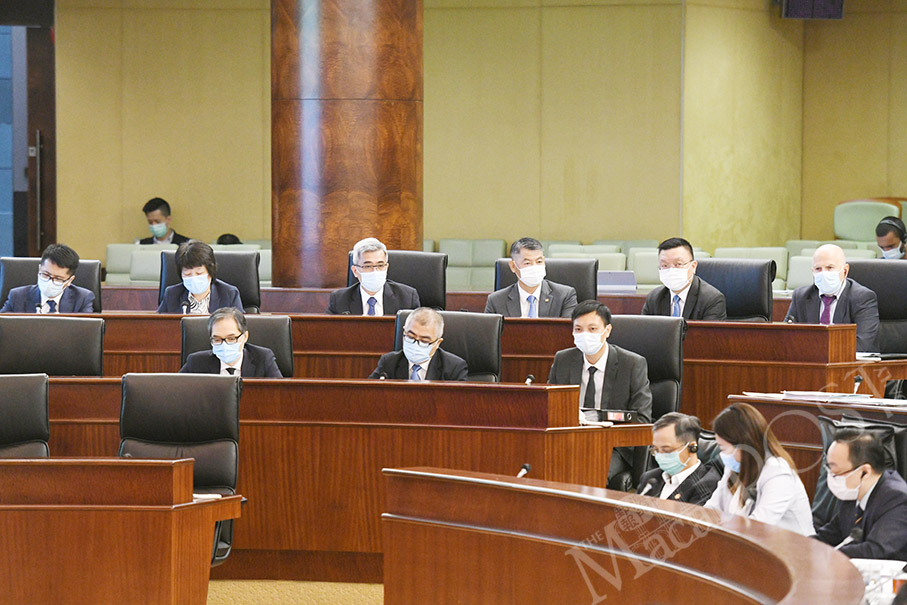The Legislative Assembly (AL) yesterday passed a government-initiated bill regulating its civil protection work, according to which those spreading rumours when “unforeseen public incidents” – such as typhoons, other natural disasters and major accidents are affecting the city – will face a prison term of up to three years.
The new law will take effect on September 15 when it will replace a decree-law regulating the government’s civil protection system and tasks promulgated back in 1992 when Macau was still under Portuguese administration.
The bill’s outline was passed during a plenary session of the legislature in June last year. The legislature’s 1st Standing Committee held 10 meetings to review the bill.
Secretary for Security Wong Sio Chak attended yesterday’s plenary session when the bill was voted on article-by-article in its second and final reading.
The bill was initially called Civil Protection Framework Law. The government renamed it Civil Protection Legal System following the bill review by government officials and lawmakers in one of the legislature’s standing committees.
Lawmakers’ debate of the bill during yesterday’s plenary session was mostly focused on the new “rumour” crime category – Article 26 of the bill, which regulates the crime of causing harm to public safety, order and peace during “unforeseen public incidents”.
Four lawmakers voted against the “rumour” crime article – Sulu Sou Ka Hou, Ng Kuok Cheong, Au Kam San and José Maria Pereira Coutinho, while the other legislators who attended yesterday’s plenum voted in favour of the article.
Civil service unionist Pereira Coutinho criticised the “vague” definition of the “rumour” article, saying he was worried that residents could “accidentally” commit this crime.
Coutinho and Au, a veteran non-establishment legislator, said that they were also worried that the “rumour” article would threaten residents’ freedom of speech. They said that while residents could be acquitted of the crime following court trial, the judiciary procedures involved would cause them discomfort.
Sou, a full-time activist, insisted that it was not necessary for the government to create the “rumour” offence for its civil protection law. Sou said that the definition of the “rumour” article was “vague” in a way that it would be up to the government’s discretion to define the crime when filing criminal complaints against residents. Sou also said that the crime would create a chilling effect on free speech, describing the new crime as “a disaster for the freedom of speech”.
Wong responded to the quartet’s views by underlining that the police will have to gather many facts and collect sufficient evidence to confirm that the suspects have created or spread rumours, adding that the government will carry out special training for police officers to ensure the correct handling of the “rumour” offence.
Wong underlined that the police will comprehensively verify the evidence that they have collected before transferring the suspected rumourmongers to the Public Prosecution Office (MP). He pointed out that the police have to transfer suspects to the prosecution office within 48 hours following their arrest.
Wong also said that the criteria for formally accusing someone of creating or spreading a rumour were very rigorous.
According to Macau’s Portuguese-style legal systems, suspects are not charged by the police but by the courts.

Secretary for Security Wong Sio Chak (upper row, third from left) addresses yesterday’s plenary session in the legislature’s hemicycle. Photo: GCS









